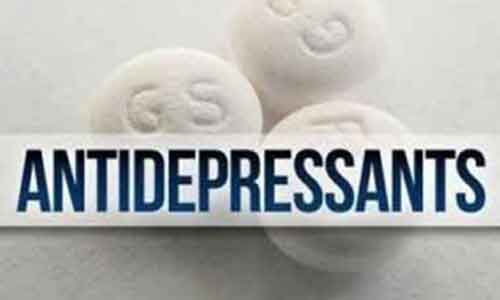- Home
- Medical news & Guidelines
- Anesthesiology
- Cardiology and CTVS
- Critical Care
- Dentistry
- Dermatology
- Diabetes and Endocrinology
- ENT
- Gastroenterology
- Medicine
- Nephrology
- Neurology
- Obstretics-Gynaecology
- Oncology
- Ophthalmology
- Orthopaedics
- Pediatrics-Neonatology
- Psychiatry
- Pulmonology
- Radiology
- Surgery
- Urology
- Laboratory Medicine
- Diet
- Nursing
- Paramedical
- Physiotherapy
- Health news
- Fact Check
- Bone Health Fact Check
- Brain Health Fact Check
- Cancer Related Fact Check
- Child Care Fact Check
- Dental and oral health fact check
- Diabetes and metabolic health fact check
- Diet and Nutrition Fact Check
- Eye and ENT Care Fact Check
- Fitness fact check
- Gut health fact check
- Heart health fact check
- Kidney health fact check
- Medical education fact check
- Men's health fact check
- Respiratory fact check
- Skin and hair care fact check
- Vaccine and Immunization fact check
- Women's health fact check
- AYUSH
- State News
- Andaman and Nicobar Islands
- Andhra Pradesh
- Arunachal Pradesh
- Assam
- Bihar
- Chandigarh
- Chattisgarh
- Dadra and Nagar Haveli
- Daman and Diu
- Delhi
- Goa
- Gujarat
- Haryana
- Himachal Pradesh
- Jammu & Kashmir
- Jharkhand
- Karnataka
- Kerala
- Ladakh
- Lakshadweep
- Madhya Pradesh
- Maharashtra
- Manipur
- Meghalaya
- Mizoram
- Nagaland
- Odisha
- Puducherry
- Punjab
- Rajasthan
- Sikkim
- Tamil Nadu
- Telangana
- Tripura
- Uttar Pradesh
- Uttrakhand
- West Bengal
- Medical Education
- Industry
Adjunctive Antipsychotics and Antidepressants use may prompt movement disorders in kids: JAMA

A new study published in the Journal of American Medical Association shows that in children and adolescents with depression adjunctive antipsychotics alongside antidepressants were related with movement abnormalities and seizures when compared to antidepressant monotherapy.
There is little research on neurological side effects associated with the use of antipsychotics in conjunction with antidepressants, particularly in children and adolescents. As a result, Soo Min Jeon and colleagues conducted this study to examine the relationship between neurological adverse events (movement disorders such as parkinsonism, extrapyramidal symptoms such as dystonia, chorea, and tics, and seizures) and the adjuvant usage antipsychotics in adolescents and children with depression.
Between 2008 and 2018, a retrospective cohort research was conducted utilizing the Health Insurance Review and Assessment claims database in Korea. Children and adolescents aged 2 to 18 years with depression who began antidepressant medication between January 1, 2010 and December 31, 2018 were included in the research. Between December 9, 2020, and December 10, 2021, data were evaluated. This study took into account time-varying antidepressant and antipsychotic exposure, as well as antidepressant and antipsychotic concurrent usage. Concomitant usage was further classified based on antipsychotic treatment status.
The key findings of this study were as follow:
1. The study comprised 9890 patients in all.
2. For movement disorders, there were correlations between concurrent use and antipsychotic-only use vs antidepressant-only use, although their CIs overlapped.
3. The seizure connections were comparable.
4. The aHRs steadily rose with increasing antipsychotic dosages when used concurrently.
5. For movement disorders, haloperidol had the greatest aHR, 7.15.
6. Quetiapine had the greatest aHR for seizure, followed by aripiprazole.
In conclusion, these findings imply that using antipsychotics alone or in combination with antidepressants increases the risk of movement abnormalities and seizures in children and adolescents with depression. Also, health care providers should carefully examine the risk-benefit profile of depression therapy for children and adolescents.
Reference: Jeon SM, Park H, Park S, Chung US, Kwon J. Association of Treatment With Antipsychotics, Antidepressants, or Both With Movement Disorders and Seizures Among Children and Adolescents With Depression in Korea. JAMA Netw Open. 2022;5(4):e227074. doi:10.1001/jamanetworkopen.2022.7074
Dr Kartikeya Kohli is an Internal Medicine Consultant at Sitaram Bhartia Hospital in Delhi with super speciality training in Nephrology. He has worked with various eminent hospitals like Indraprastha Apollo Hospital, Sir Gangaram Hospital. He holds an MBBS from Kasturba Medical College Manipal, DNB Internal Medicine, Post Graduate Diploma in Clinical Research and Business Development, Fellow DNB Nephrology, MRCP and ECFMG Certification. He has been closely associated with India Medical Association South Delhi Branch and Delhi Medical Association and has been organising continuing medical education programs on their behalf from time to time. Further he has been contributing medical articles for their newsletters as well. He is also associated with electronic media and TV for conduction and presentation of health programs. He has been associated with Medical Dialogues for last 3 years and contributing articles on regular basis.
Dr Kamal Kant Kohli-MBBS, DTCD- a chest specialist with more than 30 years of practice and a flair for writing clinical articles, Dr Kamal Kant Kohli joined Medical Dialogues as a Chief Editor of Medical News. Besides writing articles, as an editor, he proofreads and verifies all the medical content published on Medical Dialogues including those coming from journals, studies,medical conferences,guidelines etc. Email: drkohli@medicaldialogues.in. Contact no. 011-43720751


